When it comes to acclaimed actress TRINE DYRHOLM, it’s hard to imagine a role for which she was more destined to play than that as Christa Paffgen in NICO, 1988. Always tackling characters with emotional complexity, Dyrholm finds her performances in the unseen, reading between the lines of a script and the psyche of the character, immersing herself in the soul of the character. Just take a look at her opposite Pierce Brosnan in “Love Is All You Need” as a woman diagnosed with breast cancer, struggling to find herself again and define what it means to be a woman and be loved; or in Thomas Vinterberg’s set in the 70’s “The Commune” where she again found herself playing a strong, independent thinking woman coming to grips with personal identity, tolerance, and emotional upheaval as the comfort and camaraderie of friends conflicted with personal boundaries and privacy; and, of course, “A Royal Affair”, not to mention her many roles in Danish productions.
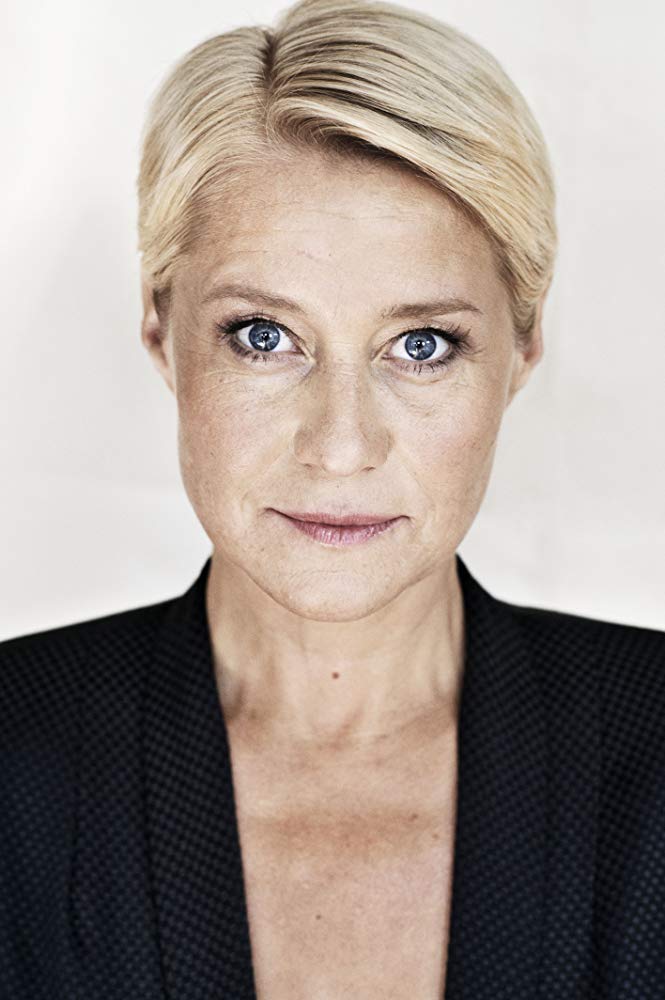
Initially making her mark in the world as a singer performing first with the Odense orchestra in Denmark and then placing third in the Danish Melodi Grand Prix as lead singer to her group, Trine & The Moonlighters, Dyrholm them embarked on a solo music career, recording a CD of her own songs. Thereafter, she moved into theatre and by her early teens was garnering acclaim for her screen work as an actress. Acclaimed actress worldwide, hit recording artist in Europe, Dyrholm’s talents speak for themselves. So it comes as no surprise to see her slide into the role of Christa Paffgen aka Nico in NICO, 1988.
Christa, best known as Nico, once lead singer and chanteuse to the Velvet Underground, was a complicated and complex woman. A German singer/songwriter, musician, model and even actress, Christa was raised outside Berlin during World War II; an inescapable experience that seemed to haunt her throughout her life. By age 16, she was one of the most sought after models in Europe, only to walk away from a lucrative contract with Coco Chanel and cross the Pond to America where she began performing as a singer. In 1966, her life took yet another when she was discovered by Andy Warhol who brought her into Velvet Underground, the group he was managing at the time. Known as “Nico”, her musical playmates of the day included soon-to-be legends like Lou Reed, Bob Dylan, Jimmy Page, Brian Jones and Jackson Browne. But that life wasn’t what Christa was looking for and it didn’t take long for her to venture out as a single, making the club rounds and recording albums. Over the next decade, the delineation between Nico and Christa became more pronounced. Battles with her record labels, producers and managers were as well known as was her heroin addiction. “Nico” slowly disappeared as Christa’s own determination and sense of self began to take hold. Gone were the bleached blonde goddess tresses. Black became her signature color. She became known as “Priestess of Darkness”. In the final decade of her life, after being almost destroyed by her addictions, she found a renewed interest in herself and music, including reconnecting with her son – also now a heroin addict – whom she had given over to his paternal grandparents to raise when he was just four-years old.
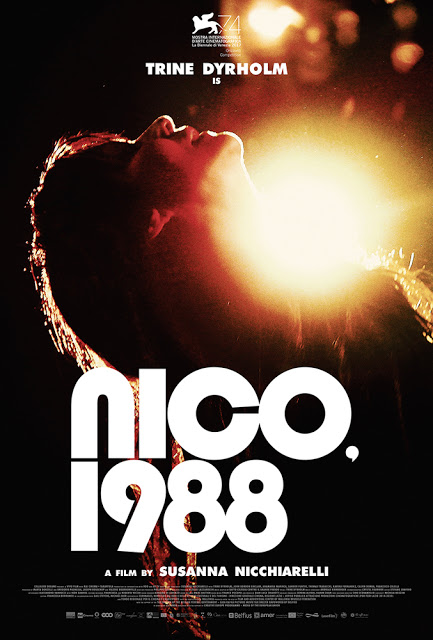
Written and directed by Susanna Nicchiarelli, NICO, 1988 focuses on the final two years of Christa’s life. Unlike the voyeuristic 1995 documentary “Nico Icon”, here with NICO, 1988 Nicchiarelli and Dyrholm dive into the psyche of Christa as she distances and distinguishes herself from the persona of Nico. Nico is a character Christa plays, not who she is. Mesmerizing and fascinating, it is thanks to Dyrholm that we are drawn into Christa’s psyche with an understanding of her demons, her conflict, her emptiness, and her struggle to find “happiness” or at least contentment. Dyrholm is transformative, enthralling, captivating with a quiet intensity as she captures the essence of both Christa and Nico; one moment commanding a crowd of “ravers” in Communist Czechoslovakia while hating every minute of being near “Communists” (As we see in the film, Christa’s roots of her upbringing in Nazi Germany run deep throughout her life.), while in the next, vulnerable yet raging, looking for her next fix, and then in quiet moments alone, yearning for a second chance with the son she gave up so long ago. The result is award-worthy and indelible.
I spoke with TRINE DYRHOLM in this exclusive interview. With palpable enthusiasm for this performance and for her craft, Trine gives us some insight into how she became Christa and Nico in NICO, 1988 . . .
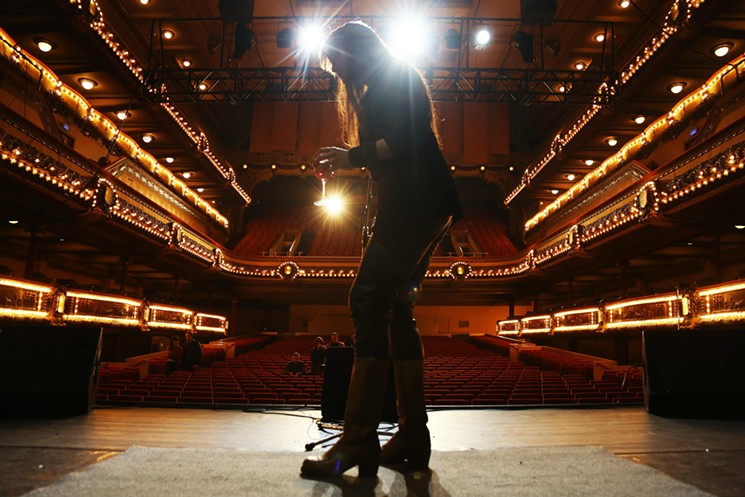
Trine, what I love about NICO, 1988 is how you constructed Christa at this stage of her life. There’s this darkness, and I’m curious how you found that darkness within yourself. But, also, as we travel through the last two years of her life and get to 1988, light is shining through the darkness. That journey over such a short time span is amazing.
The key with the character was definitely to find a way to sing the songs. And we treated all the songs as monologues, basically an emotional state of mind throughout the film. It was very important not to make an imitation but to do our version of Nico in the spirit of, but still with my voice. I was a singer back then when I was very young. When I was a teenager I was in an original song contest, so I thought I could use that background in a way for the work. And then the music helped me define the darkness. What I always find important is to make cracks in the character where you invite the audience into the character. What are they struggling with? And I think that Nico is struggling with a huge existential loneliness.
And I think that is why we make cinema. That is why we make art; to share all the existential things that we can’t really talk about, we don’t have words for that. But, we are sharing them and it’s our burden as human beings. She had an extreme life. But, what you can connect with, where you identify is with the struggling. And, I just try to find these things where you understand and identify with an artist that wants to be respected for her art and not her beauty. With a mom that is so afraid of losing a child, and she’s not the best mom to begin with. All these kind of things that you can identify with in small moments. That’s how I work. And that’s, of course, a bit different because this is a real person. But, Susanna [Nicchiarelli] said to me when I met her, “You don’t look like Nico. You don’t sing like Nico. But, I want you to play the part because I think you have the right spirit to play the main character. So, let’s do our version.” That way it would be not only a film about Nico but a universal film about any mom, any woman.

How exciting is it for you as an actress to do this narrative about a female musical star? We’ve seen plenty of biopics on male rock stars before, on groups before, but with few exceptions, nobody really does a narrative about the females.
That’s right! That’s right! It’s not often that you have complex female characters that are not likable. I mean, she’s not obviously likable this person, and I really like it because, she’s just very contradictive, she’s so complex. And, I think more of that, please!

You said something that I find very key. That you and Susanna treated the songs like monologues. And it very much felt that way while you were singing them with your cadence, with the rhythm that you established. Was that difficult to find that specific rhythm for the songs?
I think that it was the key work. We used some time in the studio trying out different things. And, I’ve done a lot of experimental theater on stage where I use my voice in different ways and screamed and did whatever with my voice. So, I’m not afraid of trying out. But, we did a lot of different versions of the songs and some of them were too much. Then one day we found a way that was true to the character. And, in a way, it was a physical thing also. So, after working with the songs, then I tried to talk like the character, and then I got the wig on and then the costume. That was the way it happened. It started with the music.
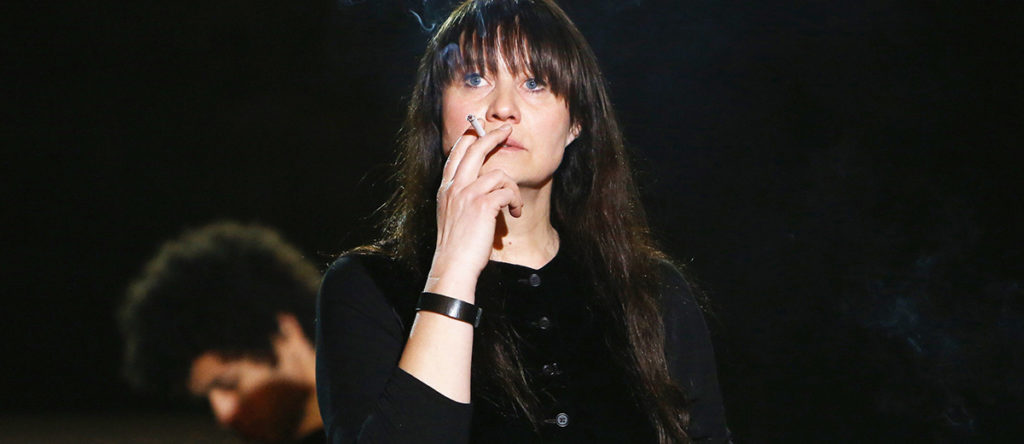
You mentioned the wig and the costume and all. And I have to say the attention to detail in the early parts of the film. The dirt around the fingernails, I thought was fabulous. It really added something else. Another layer to who Christa was and I love that.
I was inspired by a lot of interviews that I saw but also a little clip, for instance. It’s also seen in the film where she is, just right before “Nature Boy” where she is putting make-up on and she’s shooting up also. And she talks about if she’s beautiful or not. There’s a scene in the documentary where she is with the band and around and then you suddenly see her, she’s destroyed, she’s totally destroyed; but, then she sits with a little mirror and puts on make-up. It is such a contradictive image in a way. But, I was very inspired by a sentence that she said in an interview. When she was asked, “Do you regret anything?”, then Nico answered, “No, I don’t regret anything other than I was born a woman and not a man.” And it was very inspiring because it tells you a lot of things about what she’s struggling with. She’s so beautiful and she didn’t fit that image. And, that was too narrowed. Defined by men all the time and she wanted to be respected for her art. She had this deep voice that didn’t fit the blonde lady. She didn’t fit! It was very inspiring to work with this character.
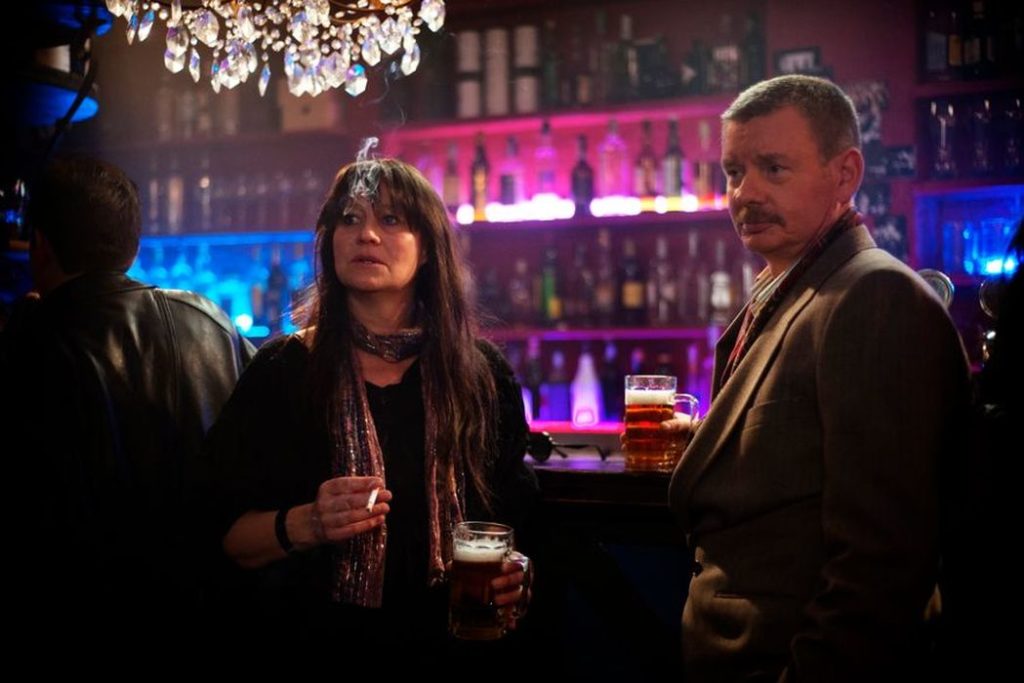
I’ve got to ask you about working opposite John Gordon Sinclair. That dynamic between the two of you. The camera would pick up your eyes. There was a great love in those eyes as you’re looking at him. And there was always love. This guy was so in love with Christa, it was beyond belief. But, yet, that wall was there. How did you work with John to develop that chemistry because it simmers? It’s like just before a pot boils throughout the whole film and that was amazing to watch.
It was easy. I thought he was so wonderful, John Gordon Sinclair. He is hilarious. We had so much fun. I cried of laughter all the time together with him. He is amazing. And, I really like the relationship that they have. I love all the scenes that Susanna had me do. It was just joyful and very emotional to rehearse together with John. He’s a great actor, great actor, and such a gentleman. An amazing man.
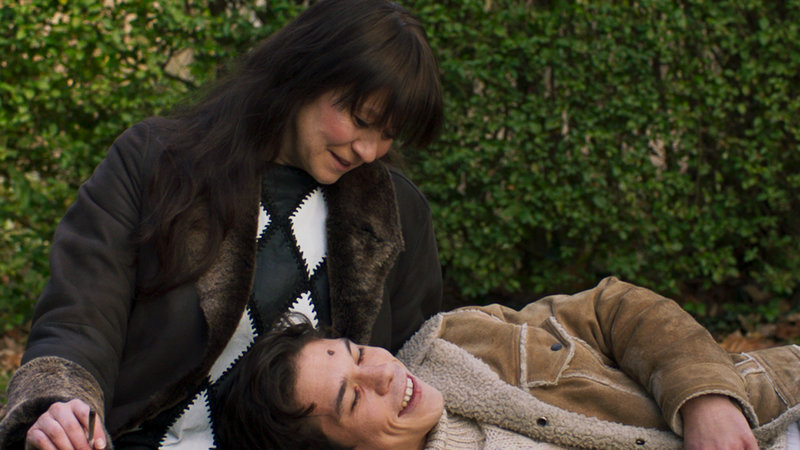
And, of course, then Sandor [Funtek] comes in as Christa’s son, Ari. The heart could break watching this scene as you’re on the bus and he’s laying on your shoulder and you’re pulling the coat over him like a baby in his crib. These tiny little touches that you added really conveyed the conflict within Christa; as to who she wants to be as opposed to how everybody in the world has made her.
Yeah, or how it turned out. And there’s a combination of a lot of things.
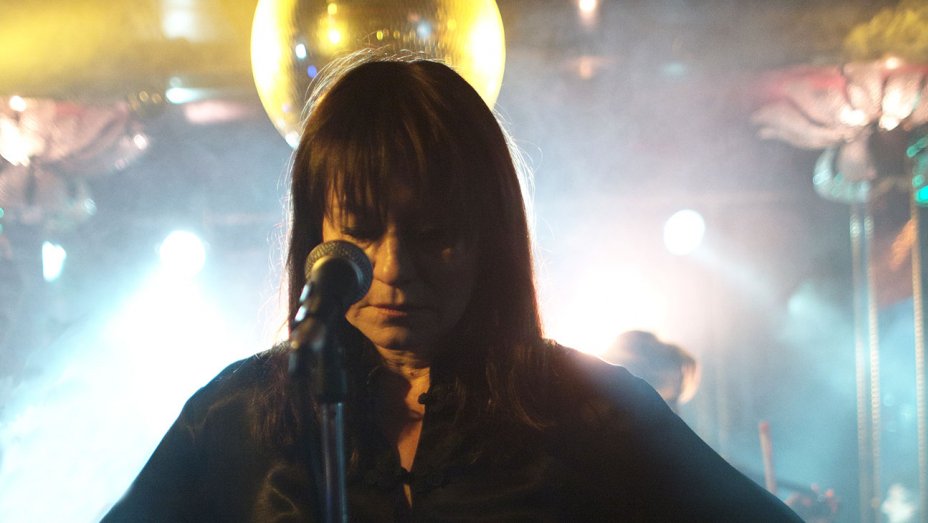
What did you personally take away from the experience of making this film, Trine? This is a real person who does have a legacy that many people know and that’s something different than a fictional character. So I’m curious what you took away from the experience of bringing the essence of Christa to life
For me, this film is about identity. It’s about finding your way in life. And, I am very grateful that I had the chance to learn about Nico’s music and her life story. I can’t say in one word what I took out of it, but the combination of the material, Nico, the music, and the meeting I had with Susanna and all the other actors, it is by far the biggest challenge I’ve had in my career. I was in doubt every day every day whether it was too much or it was good enough. It has been also the greatest experience to make this film and I’m very proud of it. I really hope that people will connect to it.
interview by debbie elias, 08/03/2018












